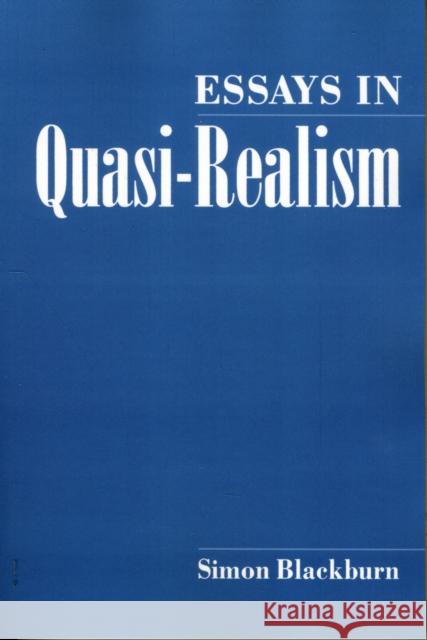Essays in Quasi-Realism » książka
Essays in Quasi-Realism
ISBN-13: 9780195082241 / Angielski / Miękka / 1993 / 272 str.
Essays in Quasi-Realism
ISBN-13: 9780195082241 / Angielski / Miękka / 1993 / 272 str.
(netto: 205,62 VAT: 5%)
Najniższa cena z 30 dni: 194,75
ok. 16-18 dni roboczych.
Darmowa dostawa!
This volume collects some influential essays in which Simon Blackburn, one of our leading philosophers, explores one of the most profound and fertile of philosophical problems: the way in which our judgments relate to the world. This debate has centered on realism, or the view that what we say is validated by the way things stand in the world, and a variety of oppositions to it. Prominent among the latter are expressive and projective theories, but also a relaxed pluralism that discourages the view that there are substantial issues at stake. The figure of the "quasi-realist" dramatizes the difficulty of conducting these debates. Typically philosophers thinking of themselves as realists will believe that they alone can give a proper or literal account of some of our attachments--to truth, to facts, to the independent world, to knowledge and certainty. The quasi-realist challenge, developed by Blackburn in this volume, is that we can have those attachments without any metaphysic that deserves to be called realism, so that the metaphysical picture that goes with our practices is quite idle. The cases treated here include the theories of value and knowledge, modality, probability, causation, intentionality and rule-following, and explanation. A substantial new introduction has been added, drawing together some of the central themes. The essays articulate a fresh alternative to a primitive realist/anti-realist opposition, and their cumulative effect is to yield a new appreciation of the delicacy of the debate in these central areas.











